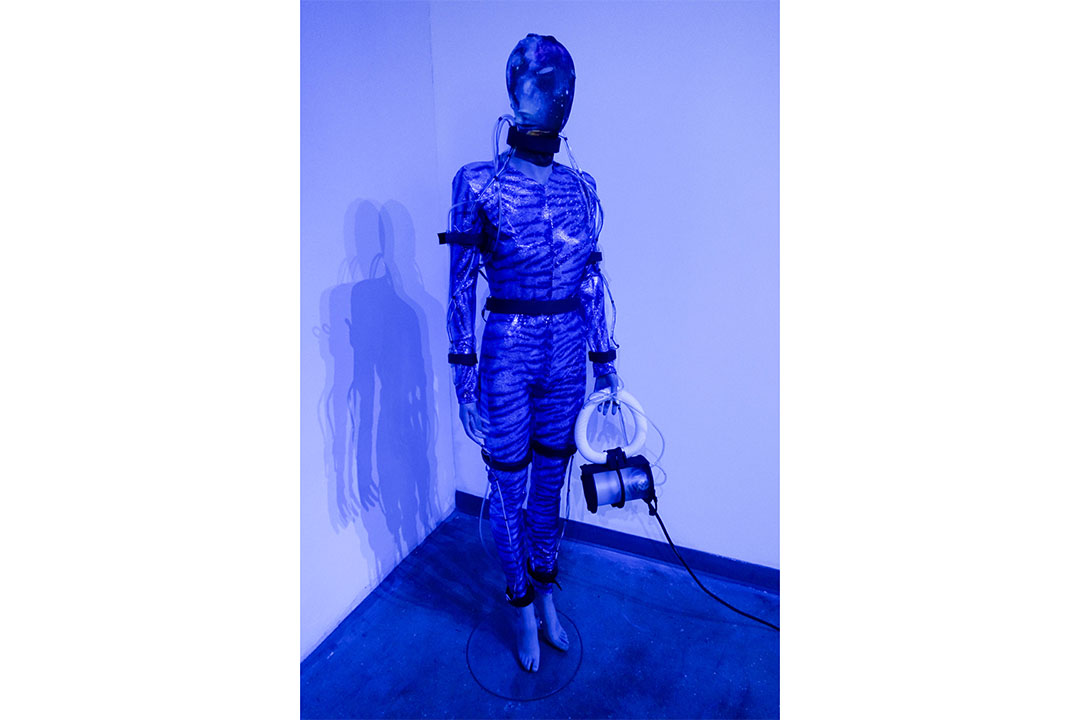Last winter was a cold and alienating one. Since school was fully online, I sat alone on my computer in my half-abandoned residence all day. It was hard to find comfort in many of my classes, since nobody had their camera on and I was yet to interact with many of my professors.
But there was one course that I was able to connect with: WGS390 — Land-ing: Indigenous and Black Futurist Spaces, which is taught by Karyn Recollet, an urban Cree scholar, artist, and writer. Recollet created the course based on their personal work on decolonial land relations, which explores the intersections of Indigenous artistic activism based on Indigenous territories that are urban spaces.
The course invites students to explore, through an artistic and multidisciplinary approach, the contribution of Black and Indigenous futurisms to theories of land and space-making. It’s centered around ‘land-ing,’ a term coined by Recollet. Having never encountered the term before, I found it initially difficult to grasp.
Eventually, I learned that land-ing is first and foremost a practice: the action of developing a relationship with Earth’s land. It is also a critique: a conceptual lens with which to analyze Indigeneity and Blackness in the context of land-based experiences and politics such as immigration, adoption, diasporas, colonialism, exile, sovereignty, and displacement. Lastly, land-ing is a reference to the Kanienkehaka creation story of Sky Woman, who falls from the celestial sphere and lands on earth.
But the course goes above merely introducing and discussing the term land-ing. The philosophical concept is also applied to the concrete artistic movements known as Indigenous futurism and Afrofuturism.
Speculative, future-based fiction is the radical practice of imagining alternative worlds, and it can help make our current world better. In the course, we discussed transformative justice, pleasure activism, and radical world-making in the context of land relations.
Though the course’s content was fascinating, it was Recollet’s teaching approach that initially allowed me to connect with it. Our classes didn’t follow the patronizing, top-down lecture model; instead, they were open conversations between equal individuals. Recollet invited a variety of guests, including Anishinaabe interdisciplinary artist Susan Blight, to bring different voices and perspectives to the course content. Recollet’s pedagogy, like their work, is centered around care and ethical relationality.
Art, too, is at the center of the course. Unlike many people in academia, Recollet recognizes the value of art and creativity throughout the learning process. The class read poems, analyzed visual art, and interpreted futurist speculative fiction. One of the books we read was N.K. Jemisin’s award-winning Afrofuturist novel The Fifth Season — I highly recommend it!
Through written and visual course projects, students were encouraged to be creative. My final project was an essay that incorporated both scholarly analysis and pieces of a poem that I had written throughout the course of the semester. Coming from the field of diaspora and transnational studies — my major — I was particularly interested in the way in which land-ing formulated a metaphorical and artistic understanding of displacement. I have since pursued this interest in my personal art projects.
I recommend this course to any student who is passionate about Afrofuturism, Indigenous futurism, diasporas, decolonial feminism, or transformative justice. Not only did I become fascinated about a topic which I knew nothing about beforehand, but the course changed the way I think about education. And, on top of it all, it gave me the passion I needed to get through a tough semester and a tough winter.


